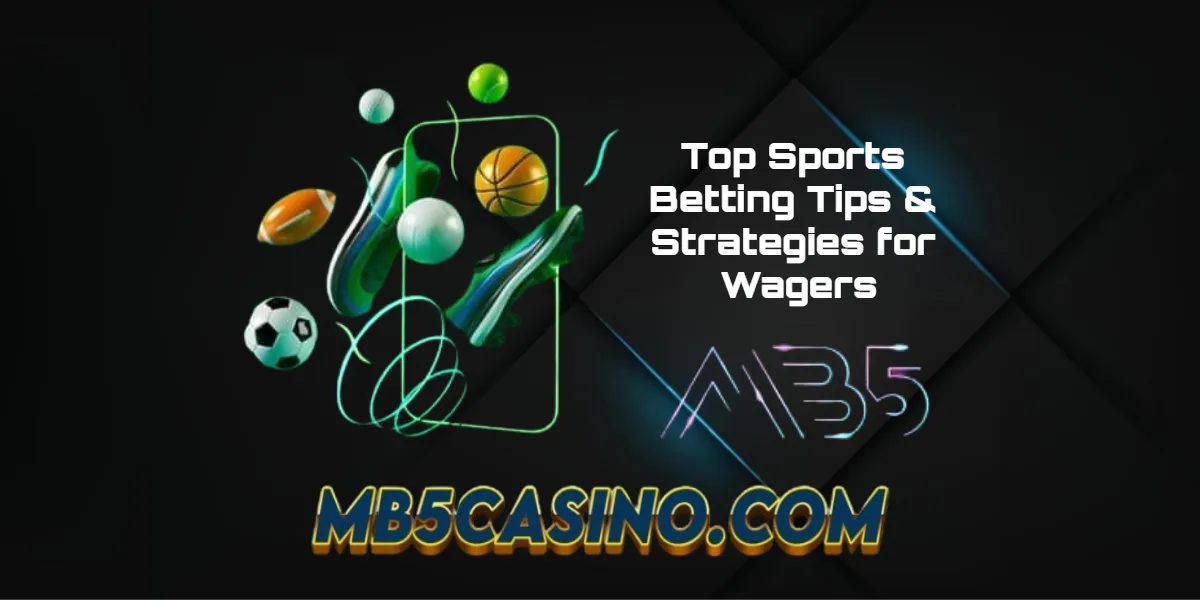Sports betting is often viewed as a game of luck, but for those who achieve long-term success, it’s a rigorous discipline blending statistical analysis, rigorous financial management, and emotional control. The difference between a casual gambler and a serious bettor lies in the adoption of professional strategies designed to minimize risk and consistently identify value in the market. This guide provides a comprehensive overview of the most critical tips and advanced strategies to help you move from simply picking winners to effectively navigating the complex world of sports wagering.
The Strategic Section: The Foundation of Financial and Emotional Discipline
The most powerful tool a bettor possesses isn't a complex algorithm; it's bankroll management. Without strict discipline over your money, even the best predictive models will eventually lead to ruin during inevitable losing streaks.
Mastering Bankroll Management
Your bankroll is the total sum of money you've specifically set aside for sports wagering—money you can afford to lose without impacting your daily life. Effective bankroll management preserves your capital and ensures you can weather variance (the natural up-and-down swings of betting results). The professional standard for managing stakes is the Unit System. Define your Unit as a small, fixed percentage of your total bankroll, typically between 1% to 3%. For example, if your bankroll is $1,000, one unit equals $10 to $30. Always bet in terms of units, regardless of the dollar amount. When your bankroll grows, your unit value increases, allowing you to bet more; when it shrinks, your unit value decreases, automatically reducing your exposure. While Flat online betting Malaysia with DuitNow eWallet (wagering 1 unit on every bet) is safest for beginners, intermediate bettors often use a Unit Scale, meaning betting 1 unit on a standard bet, 2 units on a highly confident bet, and 0.5 units on a low-confidence bet, but never exceeding 3-5 units on any single wager. One of the quickest ways to deplete a bankroll is chasing losses. This is the emotional mistake of immediately increasing your bet size after a loss to try and win back the lost money in one go. Successful bettors treat every wager independently, adhere to their unit size, and understand that losing streaks are a normal part of the process. Never let an earlier loss dictate the size of your next bet. When emotions run high, take a break.
The Power of Detailed Record Keeping
Treat your betting like a business. Maintaining a detailed log is crucial for long-term improvement. Your records should include the Date, Sport, and League, Bet Type and Selection, Odds Taken, Unit Size Wagered, Result (Win/Loss), Actual Profit/Loss, and Notes/Reasoning (Why you placed the bet). By reviewing your records, you can identify your strengths and weaknesses. Use this data to specialize and focus your energy where your edge is strongest.
The Analytical Section: Seeking the Edge or Value
Casual bettors try to pick winners, while sharp bettors (successful professional bettors) try to find value. A value bet is one where you believe the actual probability of an event occurring is higher than the probability implied by the bookmaker's odds. Every set of odds translates directly into an implied probability, which is the bookmaker's assessment of how likely an outcome is, calculated as 1 divided by the decimal odds. The Expected Value (EV) is the measure of how much you can expect to win or lose on average per bet. A Positive Expected Value ( EV) bet means that over time, you are mathematically favored to make a profit. By consistently betting on EV wagers, you beat the bookmaker's built-in margin (vig) over the long run. Line Shopping (comparing odds) is the single most effective and simplest strategy to increase your long-term return on investment (ROI). It means holding accounts with multiple sportsbooks and always betting at the operator offering the best odds for your specific wager.
What are the most common betting tips and strategies for sports betting?
The most common betting tips and strategies for sports betting revolve around discipline, research, and financial management. Key principles include establishing and strictly maintaining a bankroll, which is a dedicated fund for betting, and using a unit betting system (typically risking 1% to 5% of the bankroll per wager) to manage risk. Successful bettors emphasize betting with your head, not your heart, meaning you should avoid wagering on your favorite teams due to emotional bias.
The Final Section: Risk Mitigation and Psychological Control
Even with the best models, you will have losing days. Managing the risk and your own mental state is the final, crucial hurdle. Hedging (placing a secondary bet against your original wager) is a risk management technique used to guarantee a profit or reduce a potential loss, most commonly used for Outright Bets. Emotional discipline is non-negotiable. Never Bet on Your Favorite Team because personal fandom clouds judgment. Set a predefined Stop-Loss Limit (e.g., 10 units) that, if lost within a single day or week, signals you must stop betting immediately. This limit protects your overall bankroll from catastrophic emotional decisions during a downswing. Finally, avoid Confirmation Bias and actively seek out information that runs counter to your opinion to ensure you've considered all potential outcomes.








































